Keyword search: 176 records shown
| Course categorySort by Course category Ascending | Course nameSort by Course name Ascending | Course summarySort by Course summary Ascending | New CourseSort by New Course Ascending Ascending |
|---|---|---|---|
| Case studies for peer review | Domiciliary Visit |
In this case, delegates are asked to watch a short video about a domiciliary visit with a 71-year-old female patient who has dementia. Topics: Dementia, Refraction, Legal, Safeguarding, Vulnerable, Communication, Equipment, Visual assessment, Consent, Confidentiality, Lighting, Dispensing. | No |
| Video library | The Ageing Eye: Physiology & Pathology - Systemic |
This programme updates and refreshes optometrists' understanding of common age-related systemic diseases and their impact on the eye. It includes guidance on the effects of various medications, appropriate investigation and patient management. Topics: Diabetes, Hypertension, Neurological, Inflammatory, Arthritis, Medication, Heart disease, Malignant, Parkinsons, Vascular, Smoking, Dementia. | No |
| Video library | Vision in the Real World: Visual task analysis |
This course gives practical advice and guidance on how to take a relevant history and symptoms to enable a full understanding of a patient's needs for work and leisure. | No |
| Peer review | Docet Peer Review Facilitator Training and Guidance |
Free video training and other useful tips, advice and guidance for those who wish to facilitate peer review sessions. Topics: Facilitator, Peer discussion, Peer review. | No |
| Case studies for peer review | Visual Problems with New Spectacles |
No CPD Points
In this case, participants are asked to listen to a telephone conversation between a patient, who has just collected his new glasses, and an optical advisor. Topics: Peer review, Vision loss, Legal, Record keeping, Emergency, Referrals, Delegation, Non-tolerance, Supervision. | No |
| Case studies for peer review | Flashes and Floaters: Four cases |
No CPD Points
This peer review features four patient cases with specific symptoms that require interpretation, presented through short film clips and patient record cards. Topics: Peer discussion, Peer review, Flashes and floaters, Record keeping, Emergency, Referrals, Dilation, Retinal detachment. | No |
| Video library | Optometry and Ethnicity |
This course looks in broad terms at the four main ethnic groups in the UK and the predominant eye conditions found within each group. Topics: Cultural, Glaucoma, Diabetes, AMD, Diversity, Communication, Interpreters, Language, Equality. | No |
| Video library | See More: Dementia and optometry |
| No |
| Video library | The Ageing Eye: Physiology & Pathology - Ocular |
| No |
| Video library | The Ageing Eye: Vision and falls |
| No |
| Case studies for peer review | Visual Disturbance (Acute Presentation) |
This case discusses an acute, painless, unilateral visual disturbance in an amblyopic patient. The aim is to make a diagnosis and decide on the appropriate course of action. Topics: Vision loss, Acute, Referral, Systemic disease, Communication, Record keeping. | No |
| Case studies for peer review | Examination of an Elderly Patient |
In this case, delegates are asked to watch a short video and discuss the actions of an optometrist who examines an elderly patient with early dementia. Topics: Dementia, Refraction, Legal, Safeguarding, Vulnerable adults, Communication, Confidentiality, Visual assessment, Consent, Ageing, Referral. | No |
| Case studies for peer review | Pupil Abnormality (Acute Presentation) | No CPD Points
This case discusses anisocoria with sluggish pupil responses in a patient who reports reduced near vision over the past few months. The aim is to review the case and decide on possible causes of the pupil abnormality, and discuss whether the optometrist took an appropriate course of action. Topics: Anisocoria, Holmes-Aidie, Pupil reactions, Neurological, Mydriasis, Accommodation, Referral, Visual assessment, Pupil assessment, Record keeping. | No |
| Video library | The Ageing Eye: A day in the life |
No CPD Points
This course takes optometrists into the world of their older patients, helping them to understand some of the challenges of living with changing vision, covering topics such as lighting, driving, mobility and nutrition. Topics: Ageing eye, Lighting, Falls, Mobility, Nutrition, Diet, Low vision, Driving, AREDS, Psychology, Vision loss, Supplements, Visual impairment. | No |
| Video library | The Ageing Eye: Communication and the older patient | No CPD Points
This programme provides guidance on the challenges in communication that optometrists may face and strategies that can be used to improve their services to older patients. Topics: Vulnerable adults, Dementia, Disability, Verbal, Questions, Language, Advice, Recommendations, Ageing, Psychological, Anxiety, Cognitive. | No |
| Video library | Open Your Eyes: Modern life and its effects on the eye - Smoking |
This series takes a close look at the effects of our modern lifestyle on the eye, focusing on smoking, UV light exposure, nutrition and driving. This course discusses the major impact of smoking upon eye health and interviews three experts in the field of cessation to show how optometrists can play an important role in helping people access cessation services in the UK. Topics: GP, Cessation, Primary care, Allied health professionals, Pharmacist, Dry eye, Newly qualified. | No |
| Video library | Flashes and Floaters |
| No |
| Video library | Communication Skills |
| No |
| Video library | On the Record |
| No |
| Case studies for peer review | Driving |
This case discusses an 89-year-old diabetic patient whose vision is below the driving standard. As his optometrist, you have witnessed him driving on several occasions and are unsure about what course of action you should take. Topics: Diabetic, Standards, Legal, Confidentiality, DVLA, Referral, Anxiety, Record keeping, Ageing. | No |
| Case studies for peer review | Record Keeping and Floaters |
This case discusses the examination of David Jones, a 62-year-old retired patient with recent onset of floaters, with particular attention given to the quality of the record card. Topics: Flashes, Retinal detachment, Visual fields, Legal, Loss of vision, Tonometry, Fundus, Vitreous, Posterior vitreous detachment PVD. | No |
| Case studies for peer review | Early Dementia |
This case discusses the examination of an 85-year-old patient with early dementia and cataracts, who possibly needs referring. Topics: Ageing, Cataracts, Referral, Legal, Confidentiality, Consent, Communication, Vulnerable adults, Safeguarding, Record keeping, Visual assessment. | No |
| Case studies for peer review | Dentist - lifestyle and dispensing considerations |
Rahul Navamani is a 41-year-old dentist who requires advice for his work and sport. This case discusses various lifestyle requirements and dispensing considerations. Topics: Dispensing, Occupational, Lifestyle, Sports, Lenses, Eye protection, Injuries, Record keeping, Frames, Vocational, UV. | No |
| Case studies for peer review | Sudden Loss of Vision |
In this case, delegates are asked to watch a short video and discuss the case of a 74-year-old woman with painless, unilateral loss of vision, partially resolving after a couple of minutes. Topics: Neurological, TIA, Ischaemic, Anterior ischaemic optic neuropathy (AION), Giant Cell Arteritis (GCA), Record keeping, Acute, Ageing, Vascular, Referral. | No |
| Video library | Open Your Eyes: Modern life and its effects on the eye - UV light |
| No |
| Video library | Open Your Eyes: Modern life and its effects on the eye - Nutrition |
This series takes a close look at the effects of our modern lifestyle on the eye, focusing on smoking, UV light exposure, nutrition
and driving. The aim of this course is to emphasise the link between
poor nutrition and certain eye disorders and to establish how best to
communicate accurate and relevant information. Topics: Supplementation, Lutein, Zeaxanthin, Record keeping, Newly qualified. | No |
| Video library | Open Your Eyes: Modern life and its effects on the eye - Driving | No
This series takes a close look at the effects of our modern lifestyle on the eye, focusing on smoking, UV light exposure, nutrition and driving. This course discusses the current legal requirement for driving, important new research highlighting both the visual and cognitive influences upon driving ability, and then reviews the legal responsibility of the optometrist when standards are not achieved. Topics: Vision standards, Patient confidentiality, Data protection, Contrast sensitivity, Cognitive, Reaction times, DVLA, Class 1, Class 2, Visual fields, Acuity, Newly qualified. | No |
| Video library | Acute Presentation: Part 1 |
This course provides optometrists with information on managing patients presenting with acute onset symptoms in two key areas: sudden loss of vision and the painful red eye. It covers the presentation of each condition, what to look for during examination, differential diagnosis, referral steps, further clinical management and any red flag symptoms requiring immediate referral. Topics: Ischaemic, Optic neuropathy, Retinal artery occlusion, Retinal vein occlusion, Haemorrhage, Ameurosis fugax, Posterior eye, Referral, Treatment, Acute, Anterior uveitis, Glaucoma, Keratitis, CLARE, Contact lenses, Scleritis, Trauma, Cellulitis, Referral, Anterior eye, Ocular disease. Areas of interest: MECS, Anterior eye conditions and acute presentations, Newly qualified, Acute presentation series. | No |
| Video library | Acute Presentation: Part 2 |
Topics: Papilloedema, Optic neuritis, Pupils, Visual fields, Palsy, Nerve, Diplopia, Acute, Treatment, Referral, Retinal detachment, Giant cell arteritis, Trauma, Ischaemic, TIA. Area of interest: MECS, Anterior eye conditions and acute presentations, Newly qualified, Acute presentation series. | No |
| Video library | The Ageing Eye: Adapting the Routine - Domiciliary eyecare | No CPD Points
Using expert advice and insights, this course guides optometrists through all aspects of carrying out domiciliary eye examinations, including useful facts and tips on planning and arranging visits, effective communication, legal requirements, necessary equipment and adapting clinical techniques to meet the needs of patients being examined in their own homes or care homes. Topics: Legal, Care home, Dementia, Communication, Safeguarding, Lighting, Disability, Record keeping, Visual assessment, Equipment, GOS. | No |
| Video library | The Ageing Eye: Refractive correction for older patients |
This programme looks at the various refractive correction options available for presbyopes. Through a mix of filmed patient scenarios and expert advice four areas are considered: spectacle frames and lenses, contact lenses, correction with intra-ocular lenses, and managing presbyopic patients following refractive laser surgery. Topics: Ageing eye, Contact lenses, Spectacles, Dispensing, Refractive surgery, Intraocular lenses, Multifocal, Lenses, Tints, Presbyope, Frames, IOLs, Driving, Cataract. | No |
| Video library | The Ageing Eye: Charles Bonnet Syndrome |
A comprehensive overview of Charles Bonnet syndrome, based on the latest research. Includes advice on identifying the condition, addressing the topic with patients, appropriate management steps and what can be done to help sufferers. Topics: AMD, Ageing eye, Low vision, Dementia, Hallucinations, Psychology, Vision loss, Dominic ffytche, Visual impairment. | No |
| Video library | Developing Clinical Skills | No CPD Points
This programme looks at the application of three advanced clinical investigative techniques and shows how to undertake and interpret van Herick technique, the use of slit lamp and indirect lenses for assessment of the fundus and gonioscopy. Topics: Tonometry, Slit lamp, Gonioscopy, Volk, BIO, van Herick, IOP, Anaesthetic, Dilation, Goldmann, Glaucoma. Area of interest: MECS | No |
| Video library | The Ageing Eye: Adapting the Routine - Community practice | 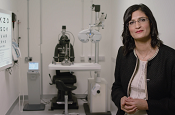 No CPD Points
In this programme, experts look at how to adapt the routine eye check when examining elderly patients including communication, ocular examination and refraction. It provides guidance on techniques to use and how best to modify an examination to ensure that elderly patients get the highest level of care and their individual needs are addressed. Topics: Communication, Ocular examination, Refraction, Binocular vision, Charts, Pupils, Visual fields, Legal, Visual assessment, Retinoscopy, Ophthalmoscopy, LogMAR, Contrast sensitivity, Lighting. | No |
| Case studies for peer review | Soft Toric Lens Fitting |
This case includes two videos and discusses corneal astigmatism, slit lamp examination results and fitting of soft toric contact lenses. Topics: Astigmatism, Soft toric lenses, RGP, RCL, Slit lamp, Toric, Aftercare, Bitoric, Gas permeable, Keratometry, Contact lenses. | No |
| Case studies for peer review | Rigid Corneal Lens (RCL) Fitting for Astigmatic Patients |
This case includes three videos and discusses corneal astigmatism, the fitting of spherical and toric RC lenses, aftercare and staining. Topics: Astigmatism, Soft toric lenses, RGP, Slit lamp, Toric, Aftercare, Bitoric, Gas permeable, Keratometry, Contact lenses, RCL. | No |
| Video library | Contact Lenses: Core Skills - Fitting and aftercare |
| No |
| Case studies for peer review | The Ageing Eye: Visual Impairment - Elizabeth |
In this session, delegates are asked to watch a short video that outlines a case scenario of a 67-year-old patient with cataracts and macula changes. Topics: AMD, Cataracts, Communication, Depression, Electronic aids, Low vision aids, Management plans, Mental health. | No |
| Case studies for peer review | The Ageing Eye: Visual Impairment - Moira |
In this session, delegates are asked to watch a short video that outlines a case scenario of an 81-year-old patient with macula degeneration. Topics: AMD, Charles Bonnet, Communication, Depression, Electronic aids, Lighting, Low vision aids, Management plans, Mental health. | No |
| Case studies for peer review | The Ageing Eye: Visual Impairment - Leonard |
In this session, delegates are asked to watch a short video that outlines a case scenario of a 93-year-old patient with glaucoma and severe sight impairment. Topics: Electronic aids, Falls, Field loss, Glaucoma, Low vision aids, Management plans, Mobility. | No |

 No CPD Points
No CPD Points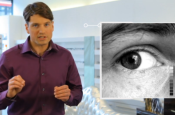 No CPD Points
No CPD Points

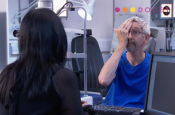
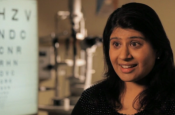 No CPD Points
No CPD Points 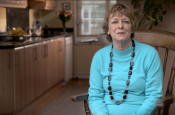 No CPD Points
No CPD Points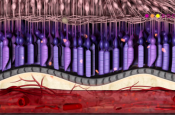 No CPD Points
No CPD Points No CPD Points
No CPD Points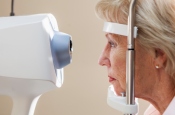

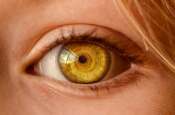


 No CPD Points
No CPD Points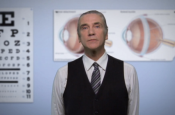 No CPD Points
No CPD Points No CPD Points
No CPD Points No CPD Points
No CPD Points

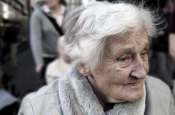
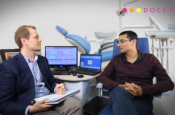

 No CPD Points
No CPD Points No CPD Points
No CPD Points CPD Points
CPD Points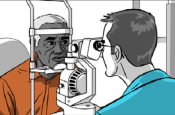 No CPD Points
No CPD Points No CPD Points
No CPD Points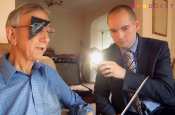
 No CPD Points
No CPD Points No CPD Points
No CPD Points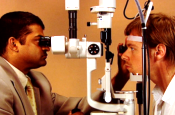


 No CPD Points
No CPD Points

